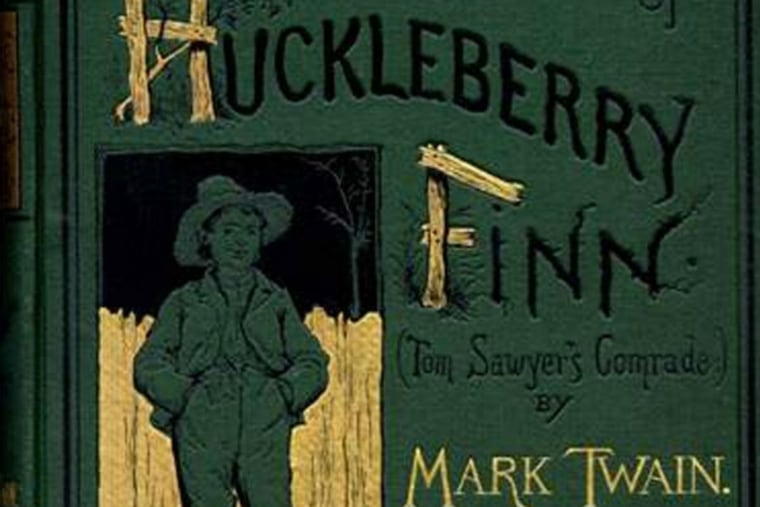Schools continue to grapple with 'Huckleberry Finn'
After The Adventures of Huckleberry Finn was published in 1885, the book was boycotted in some places in the United States for portraying friendship between a black man and a white boy.

After The Adventures of Huckleberry Finn was published in 1885, the book was boycotted in some places in the United States for portraying friendship between a black man and a white boy.
"In its time, it was derided and censored," said Deborah Caldwell-Stone, deputy director of the American Library Association's Office for Intellectual Freedom, which tracks challenges to books.
Today, Mark Twain's classic - about a boy who flees his abusive father and travels down the Mississippi River with an escaped slave - is still sometimes challenged in American schools, but for nearly the opposite reason: its liberal use of the N-word and perceived racist portrayals of black characters.
This week, a Montgomery County school removed Huckleberry Finn from its curriculum after a group of students said the book made them uncomfortable.
After a forum for students and faculty, the administration of Friends' Central School decided to strike the book from the 11th-grade American literature class, principal Art Hall said in a letter to parents this week.
"We have all come to the conclusion that the community costs of reading this book in 11th grade outweigh the literary benefits," Hall said in his letter.
The book's use of the N-word was challenging for some students, who felt the school was not being inclusive, Hall said this week.
According to the school's website, Friends' Central is guided by Quaker philosophy, and "peaceful resolution of conflicts, seeking truth, and collaboration are key aspects of a Friends' Central education."
"I'm very proud of the process that our community engaged in to make the decision," Hall said.
The novel was the No. 5 most frequently challenged book in the country during the 1990s, according to the American Library Association (ALA), and No. 14 in the decade of the 2000s.
"It will always be an issue because it touches on a very sensitive nerve, which is America's history of racism," said Antonio Aiello, a Banned Books Week coordinator at PEN American Center, a New York-based literary association.
Hall said the book will remain in the school library. Narrative of the Life of Frederick Douglass will be taught in the 11th-grade courses, potentially alongside a second novel.
The Wynnewood school isn't alone. Finn has sparked controversy at American high schools in recent years, and in 2011 a publisher made waves when it released a modified edition that removed all instances of the N-word.
Other local schools said they either teach Huckleberry Finn or have it on their library shelves. The West Chester Area School District, for example, often teaches it in the 11th grade. The Lower Merion district makes it available in its library.
"We don't shy away from teaching it," said Jim Miller, dean of students and an English teacher at Friends Select School. "We see it as a very important opportunity to educate kids further about the use of language, especially the use of the N-word."
He said the classes teaching Finn include a unit on the N-word and encourage students to think critically about history and language. The school hasn't been challenged by parents or students about books, he said.
At Greene Street Friends School, a course of study, new this year, includes books not traditionally used in schools, a spokeswoman said, such as Sherman Alexie's The Absolutely True Diary of a Part-Time Indian, which was the most frequently challenged book of 2014 by the ALA count.
"We don't let concerns about censoring or banned books shape" our curriculum, the spokeswoman said.
In recent years, the ALA has recorded about 300 to 400 challenges each year, Caldwell-Stone said, which represent "a snapshot" of what's happening across the country.
Removing a text from curriculum because of concerns about its content is generally considered a challenge to the book by those who track bans.
"We would still see this as a kind of censorship because there is something to be learned from this work," Caldwell-Stone said.
Hall said the choice would empower students.
"I do not believe that we're censoring. I really do believe that this is an opportunity for the school to step forward and listen to the students," he said.
610-313-8205
@McDanielJustine
CORRECTION: This article has been corrected to reflect the proper quote from Jim Miller, dean of students and an English teacher at Friends Select School.